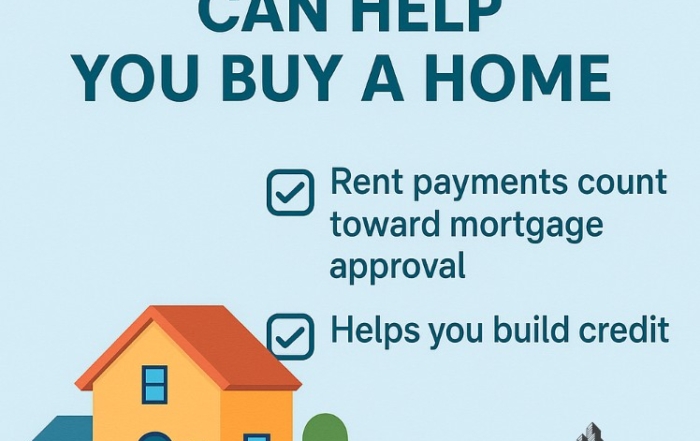
Best Ways to Find Contractors/Handymen in Your Market
After investing in over 30 rentals and managing hundreds more, I’ve learned one thing: good contractors are worth their weight in gold. Whether you’re flipping houses or managing long-term rentals, your contractors are the unsung heroes behind your success—or the biggest headaches you’ll ever face. Getting this part right is crucial. In this article, I’ll walk you through the smartest, most practical ways to find great contractors and handymen in your market. We’ll cover how to build loyalty, avoid getting ripped off, and create a system that helps you scale.
Start With This Mindset
Before we get into the how-to, let’s talk mindset. You’re not just hiring someone to hang drywall or patch up a roof. You’re building a team. Think long-term. Every contractor or handyman you work with is either a future asset—or a future headache. You want people who understand your goals, communicate well, and think like investors, not decorators.
Every time you meet a new vendor, treat it like a job interview. Would you want this person handling your entire rehab portfolio? Would you trust them to work without supervision? If not—keep looking. You’re better off being picky now than paying for poor work later.
Best Ways to Find Contractors & Handymen
Let’s get into the meat of it—how do you actually find quality contractors and handymen in your local market? Here’s what’s worked for me and my clients:
1. Referrals from Property Managers If you’re working with a property manager, start there. Good PMs have a list of trusted vendors they’ve worked with for years. These contractors are usually loyal to the PM because they get steady work, and that loyalty trickles down to you. The contractor doesn’t want to lose the PM’s business, so they’re more likely to treat you right, show up on time, and do quality work.
2. Tap Into Investor Groups and Meetups Real estate investor meetups and Facebook groups are a goldmine. Ask around—investors love to share their “go-to” guys (and warn you about the bad ones). Just remember, one good experience doesn’t mean the contractor is amazing. Still do your vetting, but it’s a great place to start.
3. Check Local Facebook Groups and Craigslist (With Caution) You can find some great handymen in local community groups, but be cautious. Always verify their license and insurance, and never pay upfront. Give them small test jobs to see how they work before giving them a big-ticket item like a full rehab.
4. Drive the Neighborhood Old-school but still works: drive around and see who’s working in your market. Stop and chat with crews on active job sites. Ask for business cards, take pictures of their work, and build your list that way. These guys are already working in your area and might be looking for more consistent work.
5. Use Test Jobs to Vet Vendors Never hand over a full rehab job to someone you’ve never worked with. Start with a small, easy project—like fixing drywall or replacing a faucet. If they communicate well, show up on time, and clean up after themselves, you can move forward with bigger projects.
How I’ve Saved Clients Thousands
Let me give you a real example. Just recently, I saved a client $5,000 on a roof and $1,000 on an A/C. That’s $6,000 saved on one project—just by knowing which vendors to call and how to negotiate. I’ve also helped clients save up to 50% on their first rehab by identifying which items could be fixed instead of replaced.
Most contractors are quick to say, “You need to replace it,” because it’s easier, safer, and usually more profitable for them. But when you find vendors who think like investors, they’ll look for smart repairs first. That’s where the real savings happen.
I call this Tonka thinking—you don’t replace something just because it’s old. You run it until it no longer works. Like driving a tire to the end of its 40,000-mile tread life. Smart investors don’t waste money—they maximize utility.
Building Vendor Loyalty Through Your PM
There’s another layer of strategy here—using your property manager as leverage.
Here’s how it works: most contractors want steady work. If your PM manages 100 properties, that’s a big carrot. So when you connect your PM and the contractor, or let the PM know you’re bringing in a good vendor, you’re creating an opportunity for everyone.
That contractor is now motivated to impress not just you—but the PM too. That creates accountability. If something goes wrong, the PM can step in, and the contractor knows their next job is on the line. This gives you faster service, better rates, and less stress.
The vendors your PM uses are usually battle-tested. They’ve already been vetted. They’re used to working on tenant-occupied homes and know how to handle tenant communication and tight timelines.
A Property Manager Can Be Your Rehab Compass
You know what else a good PM does? They’ll tell you when you’re going overboard—or not doing enough.
Maybe you want to install high-end lighting and granite countertops. Your PM may say, “That’s too much for this area—you’ll never get that money back.” Or maybe you’re trying to cheap out on flooring, and they’ll say, “That’s going to hurt rentability.”
A seasoned PM will help you develop the habit of rehabbing for ROI, not emotions. They’ll train you to do just enough to make the unit clean, safe, and attractive to quality tenants—without blowing your budget.
Over time, this becomes second nature. You stop over-improving. You stop under-improving. You start building wealth.
Pro Tips to Lock Down Great Vendors
Want to build a solid contractor bench? Follow these pro moves:
-
Offer future business: Let them know if they do a good job, more projects are coming their way.
-
Bundle your properties: Offer them all your future management or rehab work. Bigger carrot = better pricing.
-
Set clear expectations: Upfront. Do they have insurance? Will they clean up after the job? What are the timelines?
-
Let your PM test them: Ask your PM, “If this guy does well, can you give him more jobs?” That motivates everyone.
-
Document everything: Scope of work, deadlines, materials, payment schedule. Clarity avoids drama.
-
Get multiple quotes: Don’t fall in love with the first guy. Compare quality, speed, and price.
Bonus: Even When Flipping—Keep the Leads!
Even if you’re flipping and not planning to hold, keep every good contractor lead. Build your Rolodex. Because when you decide to buy and hold later, or your PM needs someone fast, you’ll have trusted people ready.
I can’t tell you how many times I’ve flipped a house, built a relationship with a great vendor, and then kept using them for years after when I moved into rentals. It’s one of the best habits you can build early on.
Think of every job as part of your IP—your investor playbook. Every reliable roofer, plumber, or A/C tech is part of your system now.
Final Thought
Finding good contractors isn’t luck—it’s a skill. It takes time, patience, and a clear system. But once you’ve got a few solid vendors in your corner, everything gets easier. Your rehabs run smoother. Your rentals perform better. And you spend less time babysitting jobs and more time growing your portfolio.
So whether you’re flipping or holding, use every opportunity to build your contractor team. Use your PM’s network, build loyalty, and vet every vendor like they’re applying for a long-term job. Because they are.
You don’t need to know how to fix a roof—you just need to know who to call that won’t rip you off.
If you’re ready to find a reliable and affordable handyman, feel free to reach out to me. I’ll connect you with my trusted professionals who can handle your property needs. Let’s chat! You can schedule a time to talk with me here: http://graystoneig.com/ceo.
Written by Jorge Vazquez, CEO of Graystone Investment Group & Coach at Property Profit Academy
Keep it consistent, stay patient, stay true—if I did it, so can you! Ready to learn? Let me guide you at propertyprofitacademy.com
Pick your expert. Book your free 15-minute consult now. We are here to help!
Our Top Articles
“I’m No Crypto Expert, But…”: How I Turned Rent Money Into Bitcoin—and Why It Might Matter in Real Estate Now
Jorge Vazquez2025-07-17T02:10:56+00:00July 17th, 2025|Comments Off on “I’m No Crypto Expert, But…”: How I Turned Rent Money Into Bitcoin—and Why It Might Matter in Real Estate Now
“I’m No Crypto Expert, But…”: How I Turned Rent Money Into Bitcoin—and Why It Might Matter in Real Estate [...]
Your Rent Can Now Help You Buy a House
Jorge Vazquez2025-07-17T01:47:51+00:00July 17th, 2025|Comments Off on Your Rent Can Now Help You Buy a House
Your Rent Can Now Help You Buy a House (Yes, It’s Official) I was taking lunch while listening to [...]
Got a Call from the Tampa Bay Times Today… Let Me Tell You What Happened
Jorge Vazquez2025-07-17T01:47:24+00:00July 15th, 2025|Comments Off on Got a Call from the Tampa Bay Times Today… Let Me Tell You What Happened
Today was just a regular workday. I had some calls lined up, was checking in with [...]
Property Profit Academy:
✔ Learn to buy properties with little to no money down.
✔ Build a $10M portfolio step by step.
✔ Master strategies like BRRRR and house hacking.









